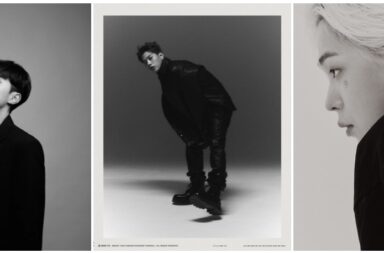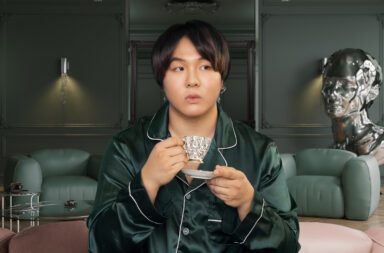We are marked as much by the things we have lost as the things we have. In his poem “Separation,” W. S. Merwin says:
Your absence has gone through me
Like thread through a needle.
Everything I do is stitched with its color.
Parting inflicts its effects physically, disrupting our choices and paths, and altering the art we make. It’s this shift in tone and sound that characterizes Cheeze’s latest single, “Love You (bye),” a piano ballad about the bittersweet nostalgia for a bygone love.
The restrained chords backing the lyrics come as somewhat of a surprise from an artist that has traditionally sampled music genres with gusto, dabbling in various forms of jazz and hip-hop. Yet in “Love You (bye),” we’re presented with a near-Puritanical austerity as Cheeze goes the route of recycled drama insert song. An ensemble of strings adds depth to the second chorus, and Dalchong’s clear vocals deliver, but it all feels strangely lacking when I remember the Cheeze I first discovered:
With “We Walk no All Fours,” there are finger snaps, hi-hat, double-bass, as well as a sassy Dalchong, unafraid to toy with a man. Even the song’s lyrics defy easy comprehension, referencing food, sex, animals – and while it’s a bit unclear what exactly is happening, it’s definitely charming in its unabashed jazziness. The track sits in the middle of Cheeze’s first album Recipe (2013), an aptly named record when you think about what composing really means: finding a good beat, mixing in vocals, adding a dash of percussive frills and synthetic arpeggios. After all, cooking is synonymous with experimentation, of trying and testing endless variations until the perfect combination is found. For what the album lacks in structure, it makes up with sheer joy in creation.
The album’s other standout track, “Pa Pa Pa,” continues the fun with a bombastic drum beat, borrowing a samba whistle and acoustic guitar – sounds meant to generate the buoyant feelings of excitement that come from letting go of routine and finding a person to embracing spontaneity with. “I just wanna chill with you / I can’t wait to be with you,” Dalchong sings declaratively, with the kind of admission one shares in a burst of rebelliousness, before grabbing their lover’s hand and dashing out the door. It’s this infectious playfulness that sustained Cheeze’s early music and captured the attention of listeners.
But the Cheeze of this era was a four-person band: vocalist Dalchong, as well as rapper Yasu, and producer Gooreumi (Cloud) and Moodi, under the company Realcollabo. This can partly account for the drastic changes in sound that have come since. Though much of their early work similarly focused on themes of love and loss, there seemed to be more room to experiment with unconventional, ambient sounds.
In “Balloons” the piano and strings are laid ever so lightly over a ticking pulse, remaining peripheral to the beat of the song. Yasu includes a rap counterpoint to Dalchong; together their voices create the tension of a couple struggling through a stagnating relationship. “Our breakup only has this laziness to be blamed on,” he argues, fighting the reluctance in Dalchong’s laments of failure. Such push and pull between male and female was another standard in the repertoire of Cheeze – though why bother fixing something that’s not broken?
Yet came the departure of producer Moodi in 2013, and then rapper Yasu for the army after the release second album Plain (2015). Structurally, this would mean a large change in lyrics, from shifting between perspectives to speaking with only one voice. But in a label switch to Strawberry Magic Sound and new EP Q (2016), Dalchong proved more than capable of holding her own: she returned with songs like “Mood Indigo” and “How Do You Think,” paying tribute to the lighthearted jazz of the group’s early releases.
The release of Q also came with the departure of producer Gooreumi and the beginning of Cheeze as a one-woman band. To counter confusion about former group members, Dalchong’s label has focused on rebranding her with new images, going as far to say on her Facebook page: “dalchong = CHEEZE.” It’s a fresh start for the lead singer as independent vocalist and composer; it’s also perhaps a burden when considering the legacy of group releases the stage name carries. There’s negative space (and silence) to be filled.
With only one single, “Love You (bye),” out as a solo artist, it is too early to lament the death of the jazz and funk that drew me to Cheeze in the first place. Change and loss are inevitable in life, though they also are liminal stages that generate productivity and possibility. For now I’ll be waiting for Dalchong to surprise me again, and show me that the absence of others also means a new sound to be discovered.
(Images via Magic Strawberry Sound)



